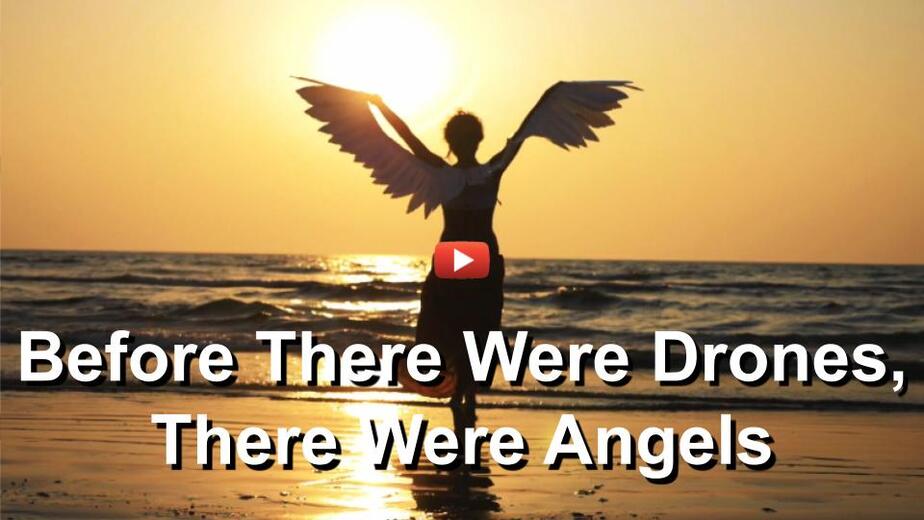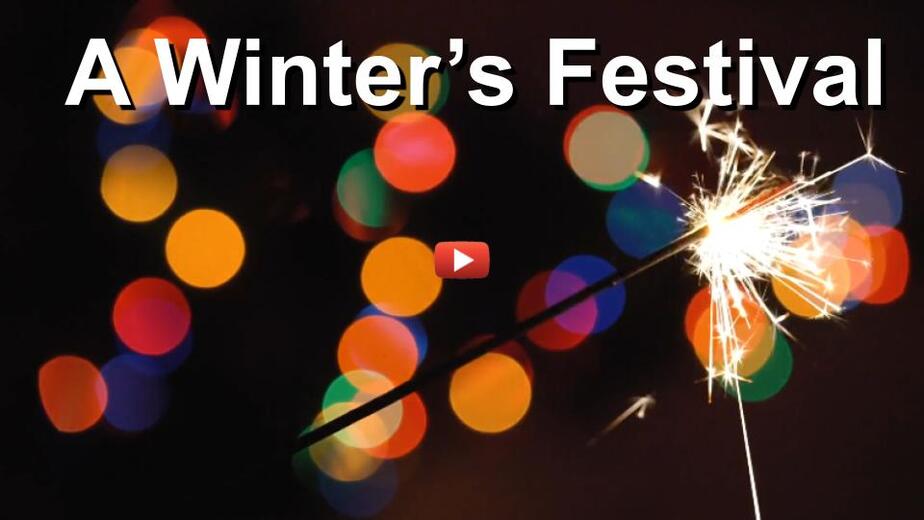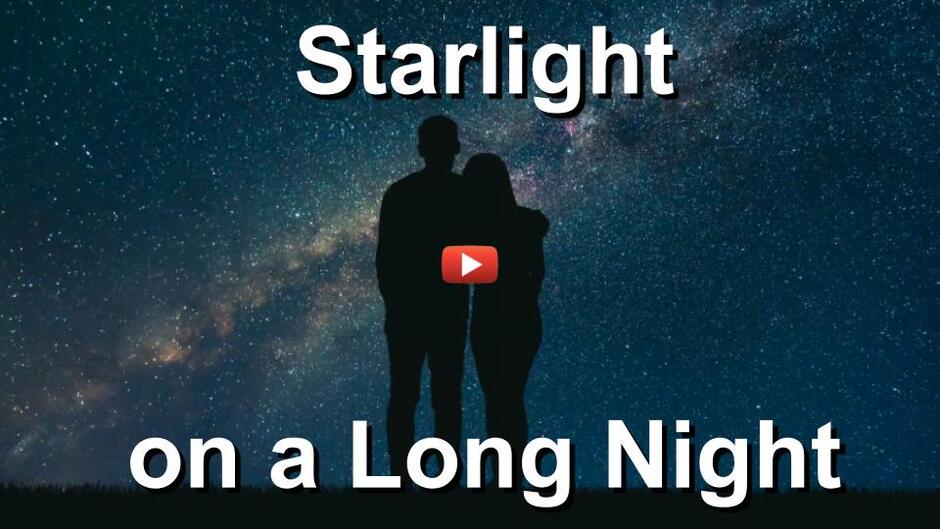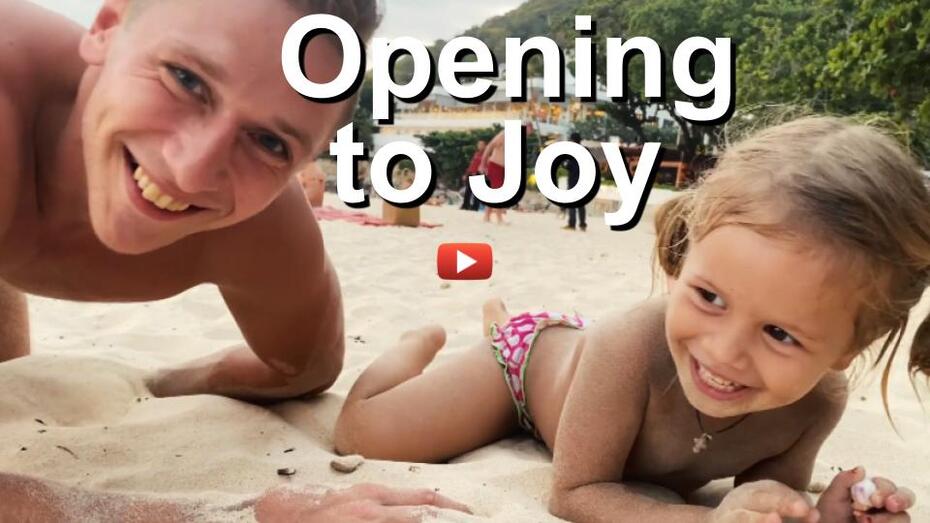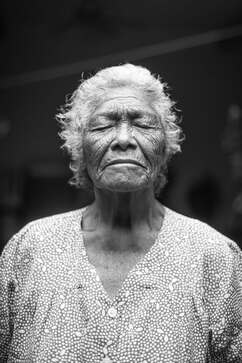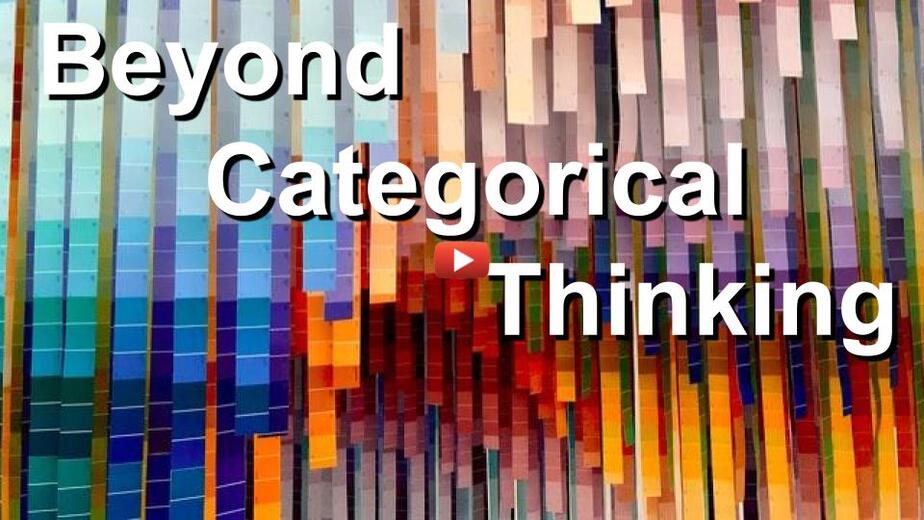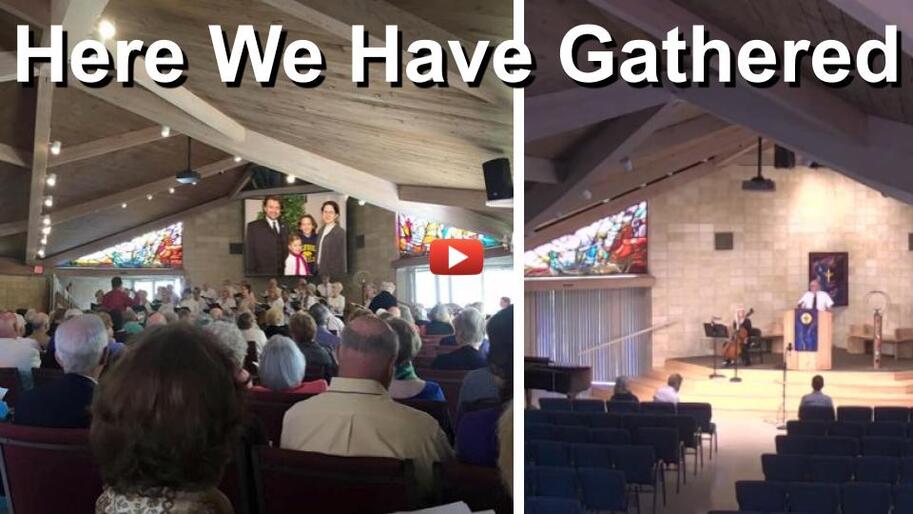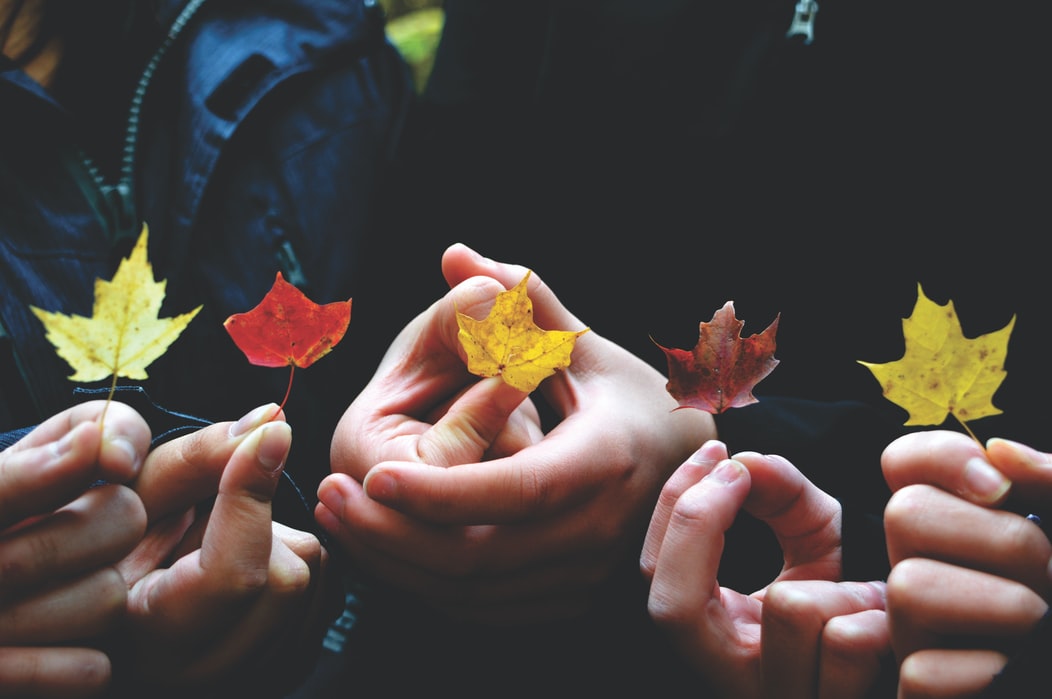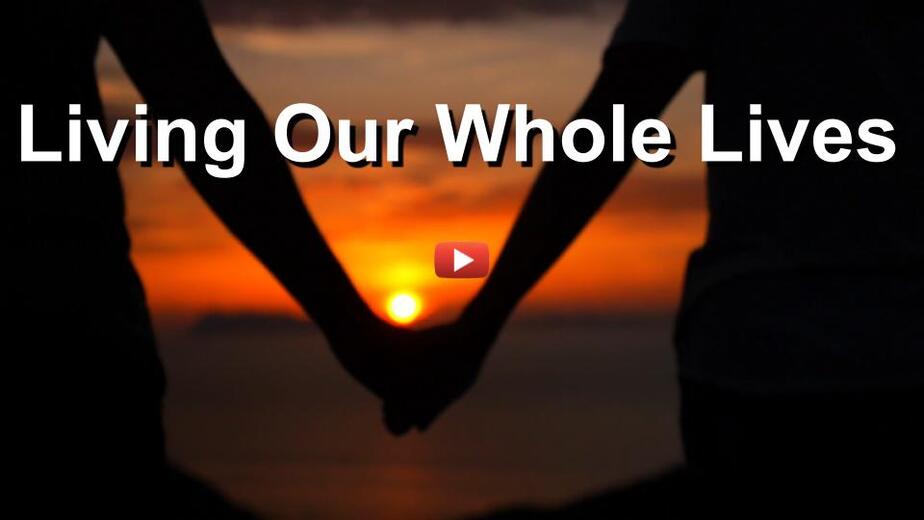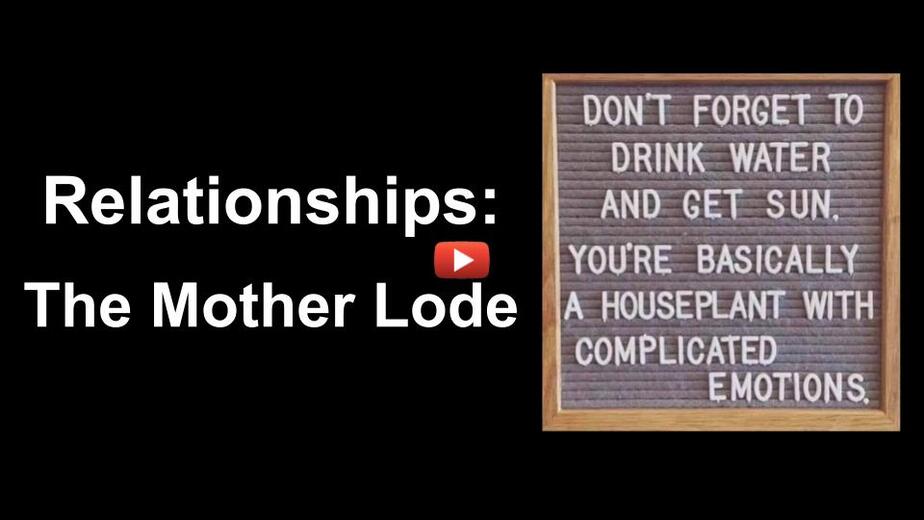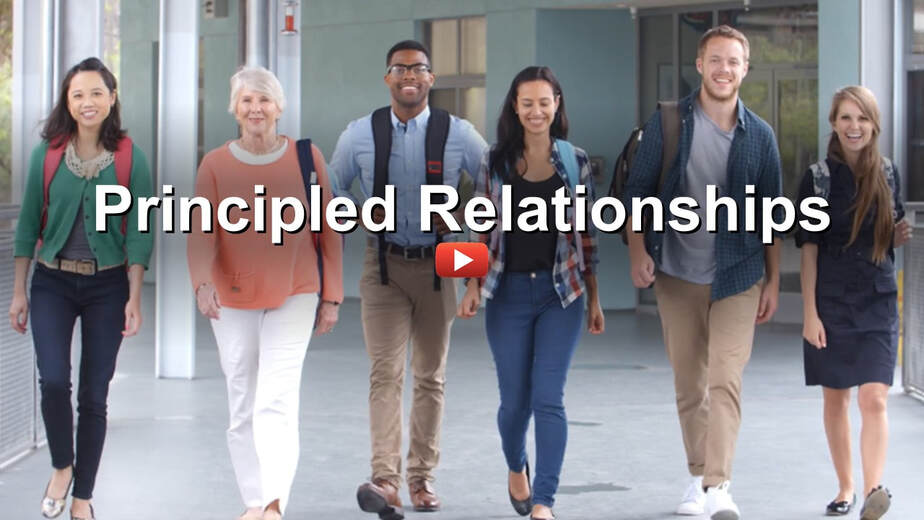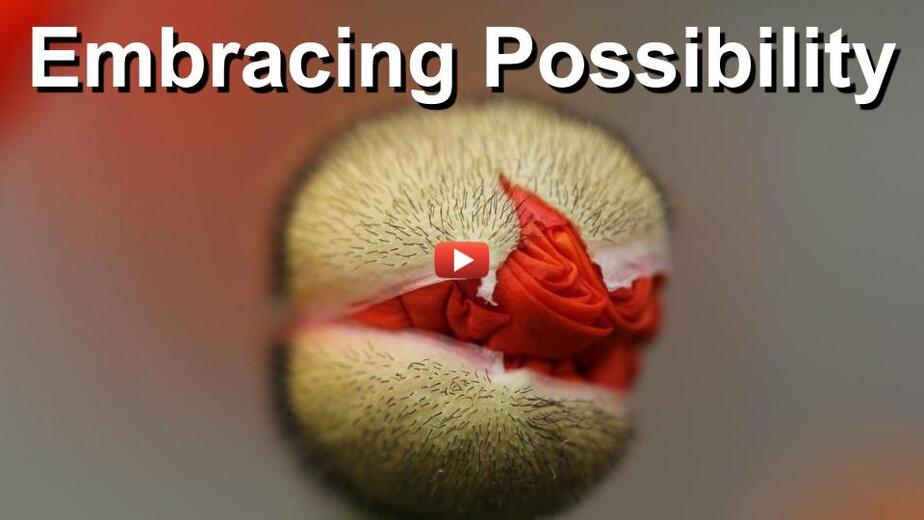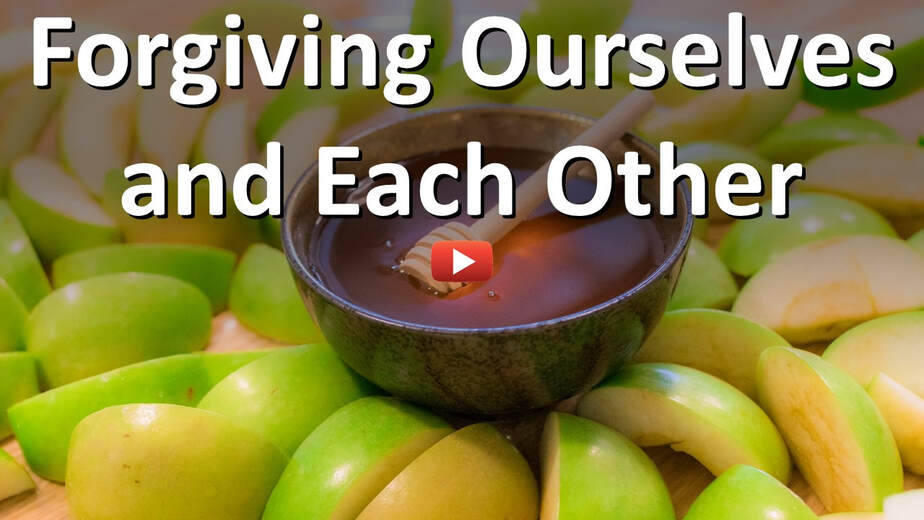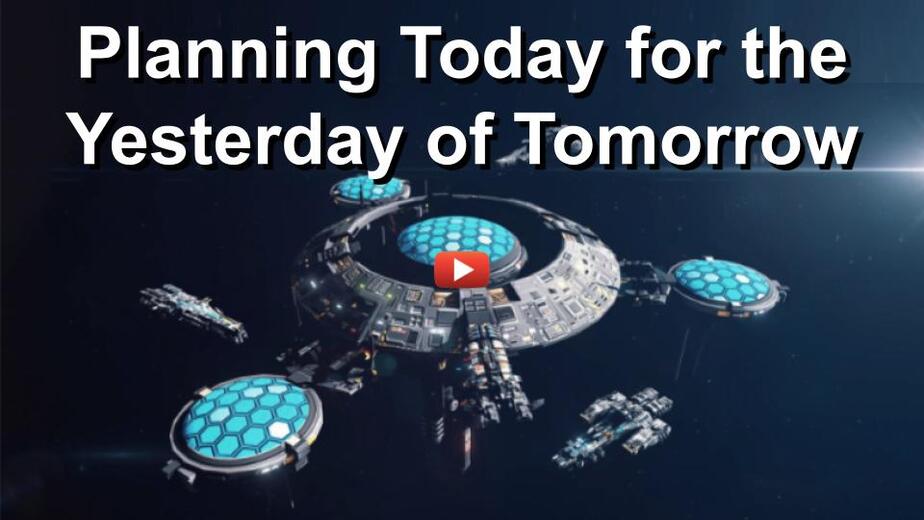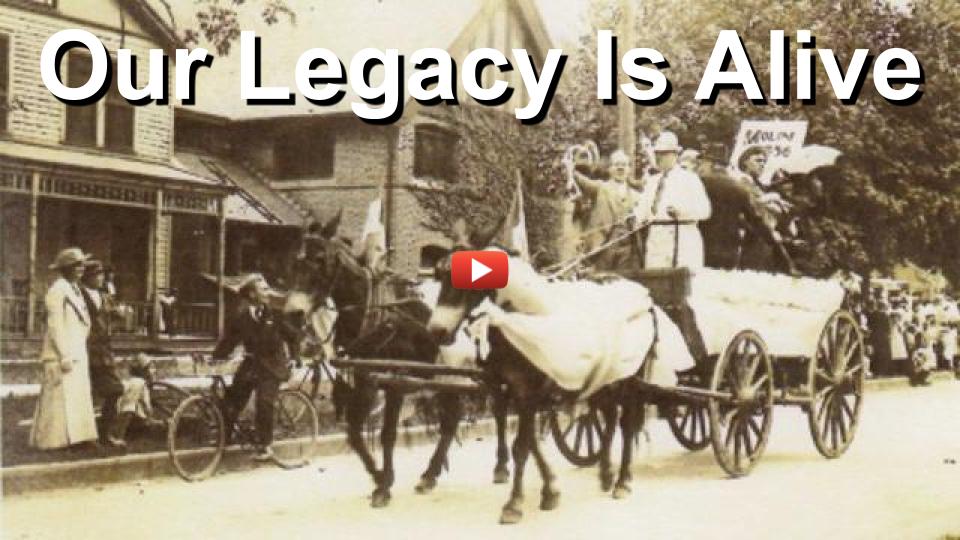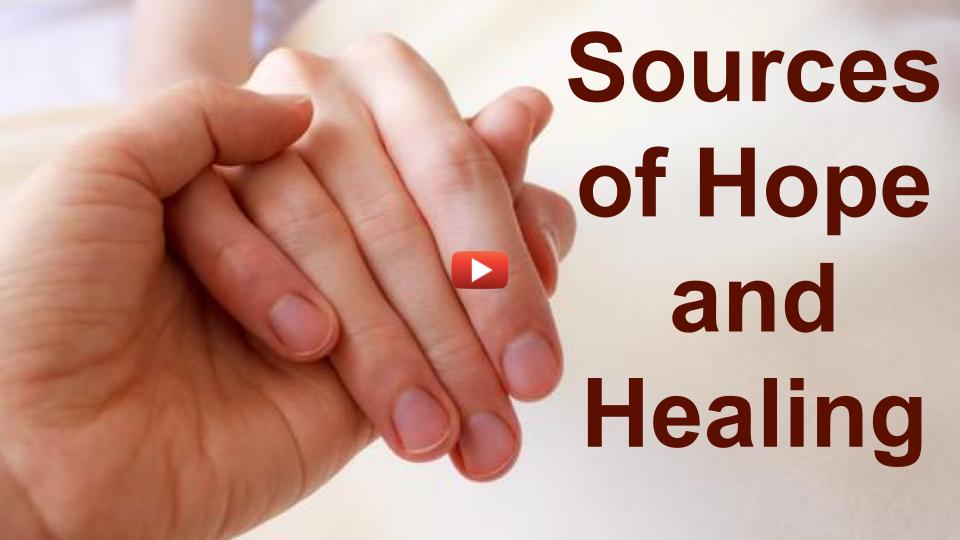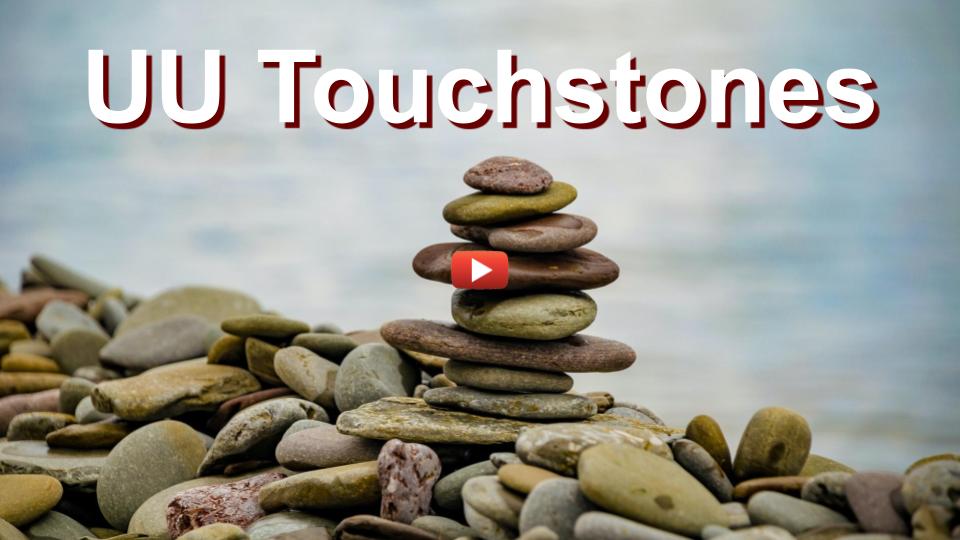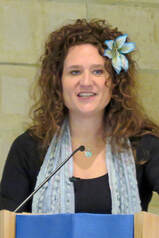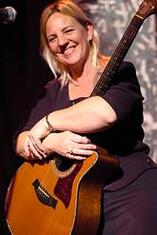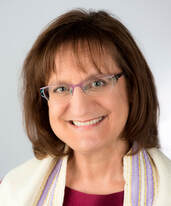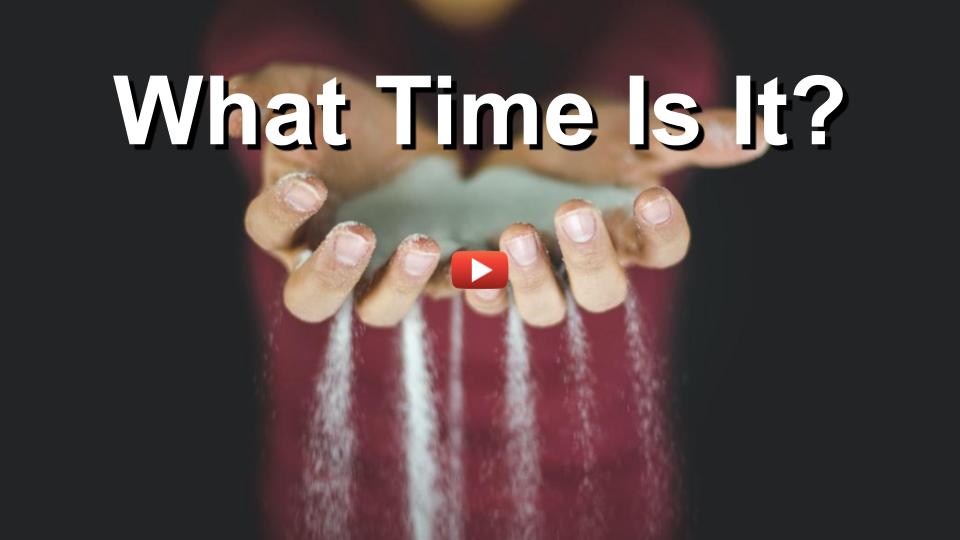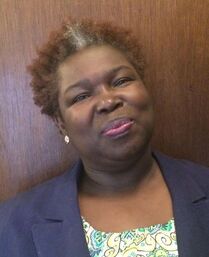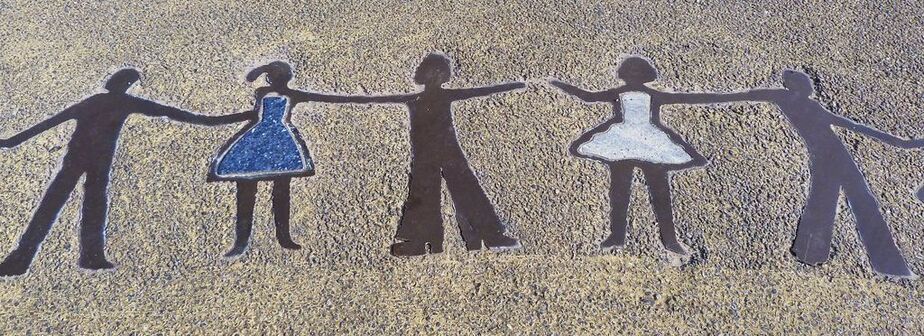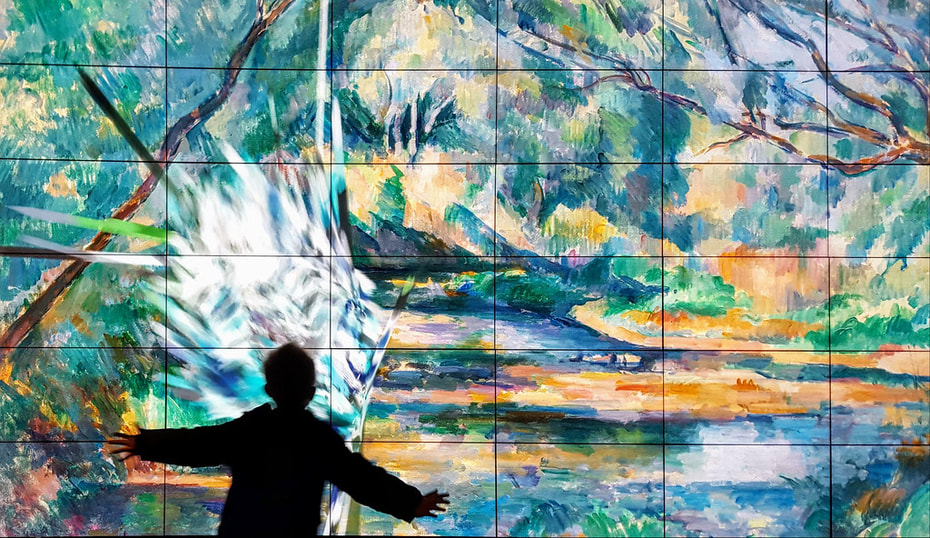December Worship Theme:
Opening to Joy
December 26:
Sermon by Rev. Budd Friend-Jones
It is well established in folk tradition that children see things hidden from most adults. Faeries, leprechauns, and sprites, for example. Gnomes and elves too. When I was a youngster, angels came to my bedroom window every Christmas. Oh yes! I saw them. Sometimes they had to fly in very windy weather. (That was something to watch!) Sometimes they hovered over dirty sheep below – on New York Avenue, no less! My story includes me and JoEllen, the preacher’s daughter, so sure you’ll want to hear it. Pedro the Donkey was there; he’ll attest to every word I’m going to say.
It is well established in folk tradition that children see things hidden from most adults. Faeries, leprechauns, and sprites, for example. Gnomes and elves too. When I was a youngster, angels came to my bedroom window every Christmas. Oh yes! I saw them. Sometimes they had to fly in very windy weather. (That was something to watch!) Sometimes they hovered over dirty sheep below – on New York Avenue, no less! My story includes me and JoEllen, the preacher’s daughter, so sure you’ll want to hear it. Pedro the Donkey was there; he’ll attest to every word I’m going to say.
Your browser does not support viewing this document. Click here to download the document.
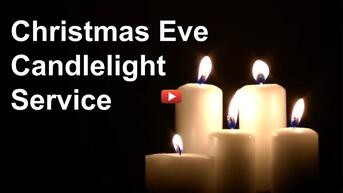
December 24:
With participation by Catherine Bonner and Reverends Beth Miller, Budd Friend-Jones and Doug Wadkins.
This service, based on a lessons and carols style service, will combine story, music, reading old and new, and candlelight to offer seasonal magic.
With participation by Catherine Bonner and Reverends Beth Miller, Budd Friend-Jones and Doug Wadkins.
This service, based on a lessons and carols style service, will combine story, music, reading old and new, and candlelight to offer seasonal magic.
December 19:
Led by Rev. Doug Wadkins and Catherine Bonner
This is a season when illumination of all kinds has great benefit. Our own Flaming Chalice is but one example of how the power of flame offers its energy, light and warmth in ways both practical and symbolic. Gather this Sunday as people of all ages to experience through story, song, and fun a festival honoring various ways that illumination continues to offer joy and hope.
This is a season when illumination of all kinds has great benefit. Our own Flaming Chalice is but one example of how the power of flame offers its energy, light and warmth in ways both practical and symbolic. Gather this Sunday as people of all ages to experience through story, song, and fun a festival honoring various ways that illumination continues to offer joy and hope.
Your browser does not support viewing this document. Click here to download the document.
December 12:
Sermon by Rev. Douglas Wadkins
So many of the stories surrounding wintertime ultimately translate to the ways that humans maintain hope in their lives, especially in difficult times. This is certainly a theme that has resonated with particular urgency the last few years. Perhaps joy also has an important role to play in maintaining our resilience and reconnecting with hope? This service will explore some possible clues to the connection.
So many of the stories surrounding wintertime ultimately translate to the ways that humans maintain hope in their lives, especially in difficult times. This is certainly a theme that has resonated with particular urgency the last few years. Perhaps joy also has an important role to play in maintaining our resilience and reconnecting with hope? This service will explore some possible clues to the connection.
Your browser does not support viewing this document. Click here to download the document.
December 5:
Sermon by Rev. Douglas Wadkins
December can be a beautiful month in Florida, and an exciting one as we continue strengthening community together. People have such a range of experiences of the month of December. Our experiences and expectations can get in the way of our potential enjoyment of this time and our life in general. Together we will explore the essential ideas around joy and how to connect more meaningfully with it.
December can be a beautiful month in Florida, and an exciting one as we continue strengthening community together. People have such a range of experiences of the month of December. Our experiences and expectations can get in the way of our potential enjoyment of this time and our life in general. Together we will explore the essential ideas around joy and how to connect more meaningfully with it.
November 28:
Sermon by Rev. Beth Miller
This Sunday is the beginning of Advent, the period of four Sundays leading up to Christmas. The Christian story that begins with the birth of Jesus proclaims that "… the Word [meaning God] became flesh, and dwelt among us…” The gospels are about the birth, life, teachings, suffering, death, and resurrection of Jesus, believed to be God incarnate, but what if…? Might divinity be inherent in all of us? One of our most popular readings by Sophia Lyon Fahs says “each night a child is born is a holy night…”
Sermon by Rev. Beth Miller
This Sunday is the beginning of Advent, the period of four Sundays leading up to Christmas. The Christian story that begins with the birth of Jesus proclaims that "… the Word [meaning God] became flesh, and dwelt among us…” The gospels are about the birth, life, teachings, suffering, death, and resurrection of Jesus, believed to be God incarnate, but what if…? Might divinity be inherent in all of us? One of our most popular readings by Sophia Lyon Fahs says “each night a child is born is a holy night…”
Your browser does not support viewing this document. Click here to download the document.
November 21:
Sermon by Rev. Keith Kron
What are our hopes and concerns for a new minister? How might our own history - both personal and congregational - interfere with our efforts in our search for such a minister?
Beyond Categorical Thinking is a virtual program designed to help congregations in the ministerial search process. The program is facilitated by a trainer from the Unitarian Universalist Association. Issues around race/ethnicity, gender/gender identity, visible and invisible disabilities and health concerns, and sexual orientation are addressed.
This is an opportunity which allows the entire congregation to learn more about the search process and more fully participate in it. This service was preceded by two workshops which were held via Zoom.
Sermon by Rev. Keith Kron
What are our hopes and concerns for a new minister? How might our own history - both personal and congregational - interfere with our efforts in our search for such a minister?
Beyond Categorical Thinking is a virtual program designed to help congregations in the ministerial search process. The program is facilitated by a trainer from the Unitarian Universalist Association. Issues around race/ethnicity, gender/gender identity, visible and invisible disabilities and health concerns, and sexual orientation are addressed.
This is an opportunity which allows the entire congregation to learn more about the search process and more fully participate in it. This service was preceded by two workshops which were held via Zoom.
November 14:
Sermon by Rev. Doug Wadkins
We opened the Sanctuary this Sunday, the first time since we halted in-person gatherings in March of last year. At left, the full sanctuary as previously experienced. At right, the empty sanctuary as seen October 31.
Sermon by Rev. Doug Wadkins
We opened the Sanctuary this Sunday, the first time since we halted in-person gatherings in March of last year. At left, the full sanctuary as previously experienced. At right, the empty sanctuary as seen October 31.
November 7:
Sermon by Rev. Beth Miller
Our Soul Matters theme for November is “Holding History.” I don’t know about you, but I’ve learned so much more about our history of racism and white supremacy over the last few years than I was ever aware of before. It certainly wasn’t taught in the schools I attended. Like many of us, I’m re-evaluating my view of our national history and how I respond to it.
Sermon by Rev. Beth Miller
Our Soul Matters theme for November is “Holding History.” I don’t know about you, but I’ve learned so much more about our history of racism and white supremacy over the last few years than I was ever aware of before. It certainly wasn’t taught in the schools I attended. Like many of us, I’m re-evaluating my view of our national history and how I respond to it.
October Worship Theme:
Cultivating Relationship
October 31:
Sermon by Rev. Doug Wadkins
This season is often understood as the time when the curtain between the living and the dead, and the past and future is most thin. It is often the case that many of us carry memories from the past. Some of those memories are joyful, some of them are difficult, and many memories are a bittersweet mixture. Let us explore the deeper components of what it might mean to be haunted by our past and how one might manage such truths in our lives.
Sermon by Rev. Doug Wadkins
This season is often understood as the time when the curtain between the living and the dead, and the past and future is most thin. It is often the case that many of us carry memories from the past. Some of those memories are joyful, some of them are difficult, and many memories are a bittersweet mixture. Let us explore the deeper components of what it might mean to be haunted by our past and how one might manage such truths in our lives.
October 24:
Sermon by Rev. Doug Wadkins
Religion has often had a rather negative set of messages about our bodies and who we are as sexual beings. This was not the intention of many of the spiritual paths that still exist today and certainly has been something that Unitarian Universalists have worked to resist for decades. Today’s service will explore what it means to live a more embodied life and how sexuality is one of many essential components of being a full and spiritual being.
Sermon by Rev. Doug Wadkins
Religion has often had a rather negative set of messages about our bodies and who we are as sexual beings. This was not the intention of many of the spiritual paths that still exist today and certainly has been something that Unitarian Universalists have worked to resist for decades. Today’s service will explore what it means to live a more embodied life and how sexuality is one of many essential components of being a full and spiritual being.
October 17:
Sermon by Rev. Doug Wadkins
One of the most important insights of here and now is the reminder that sometimes when things are important, complicated and especially urgent that we must slow down. So many cultures have become so rushed that much of the essential quality of living and relationships has been severely truncated or even lost. What is the gift of slowing down, and how might we practice cultivating that gift?
Sermon by Rev. Doug Wadkins
One of the most important insights of here and now is the reminder that sometimes when things are important, complicated and especially urgent that we must slow down. So many cultures have become so rushed that much of the essential quality of living and relationships has been severely truncated or even lost. What is the gift of slowing down, and how might we practice cultivating that gift?
October 10:
Sermon by Rev. Budd Friend-Jones
Aubrey Marcus wrote “You are comprised of 84 minerals, 23 Elements, and 8 gallons of water spread across 38 trillion cells. You have been built up from nothing by the spare parts of the Earth you have consumed, according to a set of instructions hidden in a double helix and small enough to be carried by a sperm. You are recycled butterflies, plants, rocks, streams, firewood, wolf fur, and shark teeth, broken down to their smallest parts and rebuilt into our planet’s most complex living thing. You are not living on Earth. You are Earth. Herein lies the mother lode of all relationships.
Sermon by Rev. Budd Friend-Jones
Aubrey Marcus wrote “You are comprised of 84 minerals, 23 Elements, and 8 gallons of water spread across 38 trillion cells. You have been built up from nothing by the spare parts of the Earth you have consumed, according to a set of instructions hidden in a double helix and small enough to be carried by a sperm. You are recycled butterflies, plants, rocks, streams, firewood, wolf fur, and shark teeth, broken down to their smallest parts and rebuilt into our planet’s most complex living thing. You are not living on Earth. You are Earth. Herein lies the mother lode of all relationships.
October 3:
Sermon by Rev. Beth Miller
As we begin this month’s sermon series on cultivating relationships, I’m mindful of the first three of Unitarian Universalism’s seven principles: we covenant to affirm and promote 1) The inherent worth and dignity of every person, 2) justice, equity and compassion in human relations, and 3) acceptance of one another and encouragement to spiritual growth in our congregations. We look to our seven principles and six sources for guidance on conducting our lives including how we relate to others, those close to us and those we may never know.
Sermon by Rev. Beth Miller
As we begin this month’s sermon series on cultivating relationships, I’m mindful of the first three of Unitarian Universalism’s seven principles: we covenant to affirm and promote 1) The inherent worth and dignity of every person, 2) justice, equity and compassion in human relations, and 3) acceptance of one another and encouragement to spiritual growth in our congregations. We look to our seven principles and six sources for guidance on conducting our lives including how we relate to others, those close to us and those we may never know.
September Worship Theme:
Embracing Possibility

Embracing Possibility is one of the most central themes to our tradition, “It has distinguished Unitarian Universalists from the start. Historically, when others saw depravity and sin at the core of human identity, we saw potential. When many were preaching that this world was fallen, we fell in love with the possibility of heaven on earth. Theologically, you might say we were the people who believed that God hadn’t given up on us and so we shouldn’t give up on each other or this world. Psychologically, it’s led to us being a people of “why not?” Why not give people another chance? Why not fight what seems a losing battle? Why not risk a little failure?” So, we begin this new cycle in the year with the ideals that connect us with essential aspects of our faith. This seems particularly ideal for a time when we are also embracing the possibilities presented in the search for a new minister. It asks us to think about the future and what the UUs of Sarasota and Lakewood Ranch are willing to embrace in the coming days and years? I look forward to our exploration in the coming weeks as we seek to embrace possibility.
September 19
Sermon by Rev. Doug Wadkins
The last years have presented us with the harder possibilities within our humanity and our world as we struggle with a time of great division and cruelty. We have slowly begun to face the challenges presented to us! How might we leverage possibility in favor of needed change? This service will explore some of the ways that embracing possibility might bring about needed social change.
Sermon by Rev. Doug Wadkins
The last years have presented us with the harder possibilities within our humanity and our world as we struggle with a time of great division and cruelty. We have slowly begun to face the challenges presented to us! How might we leverage possibility in favor of needed change? This service will explore some of the ways that embracing possibility might bring about needed social change.
September 19:
Sermon by Rev. Doug Wadkins
Each moment, every day is filled with possibility. In many ways, it is always with us. Perhaps one of the tasks with possibility is to help ourselves recognize it more often and open ourselves to really encountering it? After all the theme is EMBRACING possibility. Together let’s explore how we might seek to embrace it more often and more meaningfully.
Sermon by Rev. Doug Wadkins
Each moment, every day is filled with possibility. In many ways, it is always with us. Perhaps one of the tasks with possibility is to help ourselves recognize it more often and open ourselves to really encountering it? After all the theme is EMBRACING possibility. Together let’s explore how we might seek to embrace it more often and more meaningfully.
September 12:
Sermon by Rev. Doug Wadkins
As we begin a new cycle of themes we start with Possibility. This service will be an overview of the theme, inviting us each to consider our own way to enter into the theme. Possibility connects with our deepest understanding of our own life. It suggests much about how we engage community and relationships. Possibility offers a perspective much needed now around justice in the largest sense. Come explore different aspects of embracing possibility as we continue to journey together this month.
Sermon by Rev. Doug Wadkins
As we begin a new cycle of themes we start with Possibility. This service will be an overview of the theme, inviting us each to consider our own way to enter into the theme. Possibility connects with our deepest understanding of our own life. It suggests much about how we engage community and relationships. Possibility offers a perspective much needed now around justice in the largest sense. Come explore different aspects of embracing possibility as we continue to journey together this month.
September 5:
Sermon by Rev. Beth Miller
The 10 Days of Awe, the High Holy Days and beginning of the new year in the Jewish tradition, come early this year, September 6-16. They begin with Rosh Hashanah (the head of the year) and end with Yom Kippur (the day of atonement). One website says, “If the year is a train, the… High Holy Days are its engine. A delicate blend of joy and solemnity, feasting and fasting, prayer and inspiration make up the spiritually charged head of the Jewish year.”. Although we’re not a Jewish congregation, Unitarian Universalism has roots in Judaism as do many individual UUs. Forgiveness and beginning anew are powerful themes meaningful to us all, regardless of our theological perspectives. Read more on our Upcoming Services page...
Sermon by Rev. Beth Miller
The 10 Days of Awe, the High Holy Days and beginning of the new year in the Jewish tradition, come early this year, September 6-16. They begin with Rosh Hashanah (the head of the year) and end with Yom Kippur (the day of atonement). One website says, “If the year is a train, the… High Holy Days are its engine. A delicate blend of joy and solemnity, feasting and fasting, prayer and inspiration make up the spiritually charged head of the Jewish year.”. Although we’re not a Jewish congregation, Unitarian Universalism has roots in Judaism as do many individual UUs. Forgiveness and beginning anew are powerful themes meaningful to us all, regardless of our theological perspectives. Read more on our Upcoming Services page...
August 29:
Sermon by Rev. Budd Friend-Jones
“Planning Today for the Yesterday of Tomorrow” could be the motto for a fictitious Future Historians of America. What does tomorrow hold for us? Writers in the Tanakh (Hebrew Bible) foresaw a joyfully inclusive celebration and a peaceable kingdom at the end of time. John of Patmos saw violence on a cosmic scale. Today’s futurologists have more complex interplanetary visions filled with artificial intelligence and augmented realities. What do you see? Are you utopian, dystopian or apocalyptic? What must we do today to get to a better tomorrow?
Sermon by Rev. Budd Friend-Jones
“Planning Today for the Yesterday of Tomorrow” could be the motto for a fictitious Future Historians of America. What does tomorrow hold for us? Writers in the Tanakh (Hebrew Bible) foresaw a joyfully inclusive celebration and a peaceable kingdom at the end of time. John of Patmos saw violence on a cosmic scale. Today’s futurologists have more complex interplanetary visions filled with artificial intelligence and augmented realities. What do you see? Are you utopian, dystopian or apocalyptic? What must we do today to get to a better tomorrow?
August 22:
Sermon by Rev. Doug Wadkins
Continuing our exploration of our identity as Unitarian Universalists and its relevance to our current lives, we turn to our history. Sometimes we explore our history in a more focused way, but this service will look at the broad brushstroke of history and invite us to think about that bigger journey in light of our current world. There is always something Illuminating about such a larger view of history. As you listen to the story of our tradition, how is our legacy alive for you?
Pictured above is the 1909 Labor Day parade passing in front of the First Unitarian Society's new building in Iowa City, Iowa.
Sermon by Rev. Doug Wadkins
Continuing our exploration of our identity as Unitarian Universalists and its relevance to our current lives, we turn to our history. Sometimes we explore our history in a more focused way, but this service will look at the broad brushstroke of history and invite us to think about that bigger journey in light of our current world. There is always something Illuminating about such a larger view of history. As you listen to the story of our tradition, how is our legacy alive for you?
Pictured above is the 1909 Labor Day parade passing in front of the First Unitarian Society's new building in Iowa City, Iowa.
August 15:
Sermon by Rev. Doug Wadkins
More than ever, we need to stay connected to our pathways for hope and healing. In Unitarian Universalism, we have many sources. We sometimes call them our theological legacy, but they are pathways to accessing what we need to live more fully, sanely, and truthfully. This service will explore some of the ways we might think about in these challenging times.
Sermon by Rev. Doug Wadkins
More than ever, we need to stay connected to our pathways for hope and healing. In Unitarian Universalism, we have many sources. We sometimes call them our theological legacy, but they are pathways to accessing what we need to live more fully, sanely, and truthfully. This service will explore some of the ways we might think about in these challenging times.
August 8:
Sermon by Rev. Doug Wadkins
Touchstones can mean so many different things in various contexts. Sometimes they are understood as literal objects that remind us of something larger. Touchstones may also be ideals and concepts that return us to essential qualities and remind us of critical values. As we begin the search year, let us explore what touchstones might reconnect us with essential things.
Sermon by Rev. Doug Wadkins
Touchstones can mean so many different things in various contexts. Sometimes they are understood as literal objects that remind us of something larger. Touchstones may also be ideals and concepts that return us to essential qualities and remind us of critical values. As we begin the search year, let us explore what touchstones might reconnect us with essential things.
July 25:
Sermon by Rev. Brock Leach
The last year has made it clear that humanity is at an inflection point, with disease, climate and resource pressures stressing the very systems that sustain life. Yet we also know that, after a certain point, more procreation and consumption don’t add to our wellbeing anyway. Can we redirect our evolutionary drive to create abundant human life toward a shared practice of living more abundantly?
Sermon by Rev. Brock Leach
The last year has made it clear that humanity is at an inflection point, with disease, climate and resource pressures stressing the very systems that sustain life. Yet we also know that, after a certain point, more procreation and consumption don’t add to our wellbeing anyway. Can we redirect our evolutionary drive to create abundant human life toward a shared practice of living more abundantly?
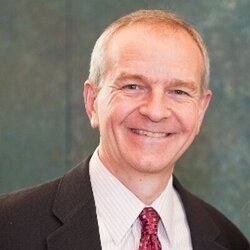 Rev. Brock Leach
Rev. Brock Leach
Brock Leach is an affiliated community minister of the Unitarian Universalist Church of Sarasota and works for the Unitarian Universalist Association supporting religious innovators who are developing new forms of Unitarian Universalist community that meet the needs of people who are underserved in our typical congregations.
Locally, Brock volunteers on the boards of Children First, Sarasota County’s Head Start agency, the Education Foundation of Sarasota County, the Sarasota African American Cultural Coalition, and chairs the Professional Advisory Group for Spiritual Care at Tampa General Hospital. He also serves on the national boards of Protect Our Defenders and the Unitarian Universalist Service Committee (UUSC), the denomination’s international human rights agency where he was formerly on staff.
Prior to ministry, Brock had a 24-year career as an executive for PepsiCo. He has a BA in economics from the University of Colorado Boulder, an MBA in finance and marketing from the University of Chicago, and a Master of Divinity degree from Meadville Lombard Theological School in Chicago. He is currently a Doctor of Ministry student at Boston University’s School of Theology.
Locally, Brock volunteers on the boards of Children First, Sarasota County’s Head Start agency, the Education Foundation of Sarasota County, the Sarasota African American Cultural Coalition, and chairs the Professional Advisory Group for Spiritual Care at Tampa General Hospital. He also serves on the national boards of Protect Our Defenders and the Unitarian Universalist Service Committee (UUSC), the denomination’s international human rights agency where he was formerly on staff.
Prior to ministry, Brock had a 24-year career as an executive for PepsiCo. He has a BA in economics from the University of Colorado Boulder, an MBA in finance and marketing from the University of Chicago, and a Master of Divinity degree from Meadville Lombard Theological School in Chicago. He is currently a Doctor of Ministry student at Boston University’s School of Theology.
|
July 18:
Remembering Tragedy and Living with Hope Sermon by Rabbi Jennifer Singer July 18 is Tisha B'Av, which commemorates the most tragic moments in Jewish history. I believe that it is necessary to remember and mourn the tragedies, but that is not enough. We must also move forward. If we have no hope, we will never have peace. |
July 11 Sunday Service
What Time Is It?
Sermon by Rev. Bill Morgan
Don't check your watch. There's nothing on the clock face that says "a decisive moment." We are at such a moment in our nation. What can we do to grasp this decisive moment to transform our nation to move forward toward the promise of a nation and world where all will have the opportunity to develop their full potential.
What Time Is It?
Sermon by Rev. Bill Morgan
Don't check your watch. There's nothing on the clock face that says "a decisive moment." We are at such a moment in our nation. What can we do to grasp this decisive moment to transform our nation to move forward toward the promise of a nation and world where all will have the opportunity to develop their full potential.
July 4 Sunday Service:
The Truths We Hold
Sermon by Catherine Bonner
Come celebrate the founding of our Country and the words and intents of those courageous enough to make a change in their world. Kick-start your Independence day with insights, words of encouragement and pride in being an American. All the hoopla without the food or fireworks.
The Truths We Hold
Sermon by Catherine Bonner
Come celebrate the founding of our Country and the words and intents of those courageous enough to make a change in their world. Kick-start your Independence day with insights, words of encouragement and pride in being an American. All the hoopla without the food or fireworks.
June Worship Theme:
Play
In play we move below the level of the serious,
as the child does; but we can also move above it--
in the realm of the beautiful and the sacred.
Johan Huizinga
as the child does; but we can also move above it--
in the realm of the beautiful and the sacred.
Johan Huizinga
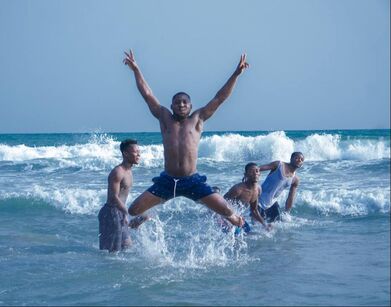 Photo by Ransfored Quaye via Unsplash
Photo by Ransfored Quaye via Unsplash
This month we begin our final formal theme until the fall. The theme is Play. Play is yet another huge theme and one that is particularly pertinent to these times. Play brings up different ideas about how we see the world and understand our lives. For instance, we give ourselves fully to play as a significant vocation in our childhood. After that, we sometimes deem it less worthy of energy if not just plain frivolous. Play invites us to think about how we engage our days. Do we approach more moments with heaviness or with a sense of whimsy and light-heartedness? Do we keep imagination, laughter, and joy a significant element in our lives? So many of you have talked about how the pandemic, and the many changes it brought about, urgently reminded you of the preciousness of time. So many people have struggled with deep stress and significant isolation over the past year. It seems like such a time on this planet would make the gifts of play all the more critical as we seek to renew and reconnect our lives. More playfulness might better serve, paradoxically, to connect us with people, places, and events of deep meaning and life! Play may lead us to the Sacred! This month we will explore some of the ways this may be so and much more.
Other videos of public events from General Assembly 2021, June 23-27, are available through this link.
June 20 Sunday Service:
Sermon by Rev. Doug Wadkins
It doesn’t seem like it should be so tough, but it can be more complicated that it seems to find a sense of playfulness and joy in our lives. It is perhaps even more true than ever with the events of the last few years, and, yet, playfulness and joy are so essential for our well-being and our spiritual health. This service will explore some of the ways we can best foster the possibilities of such goodness in our lives and in this community!
Sermon by Rev. Doug Wadkins
It doesn’t seem like it should be so tough, but it can be more complicated that it seems to find a sense of playfulness and joy in our lives. It is perhaps even more true than ever with the events of the last few years, and, yet, playfulness and joy are so essential for our well-being and our spiritual health. This service will explore some of the ways we can best foster the possibilities of such goodness in our lives and in this community!
June 13 Sunday Service:
Sermon by Rev. Budd Friend-Jones
“Play” has become a field unto itself. One can earn a PhD in play theory these days. Yet play cannot be categorized only as physiological, psychological, or biological. It is more. Playfulness may be the opposite of seriousness, but many people play very seriously indeed. Why is this?
Johan Huizinga, in his classic Homo Ludens, showed that law and order, commerce, religion, art, craft, music, poetry, wisdom and science all have their roots in play. To be human is to be playful. We will playfully look at this serious theory (or seriously look at this playful one). “Genuine, pure play,” said Huizinga, is one of the primary foundations of civilization.”
Sermon by Rev. Budd Friend-Jones
“Play” has become a field unto itself. One can earn a PhD in play theory these days. Yet play cannot be categorized only as physiological, psychological, or biological. It is more. Playfulness may be the opposite of seriousness, but many people play very seriously indeed. Why is this?
Johan Huizinga, in his classic Homo Ludens, showed that law and order, commerce, religion, art, craft, music, poetry, wisdom and science all have their roots in play. To be human is to be playful. We will playfully look at this serious theory (or seriously look at this playful one). “Genuine, pure play,” said Huizinga, is one of the primary foundations of civilization.”
June 6 Sunday Service:
"Collage" service by Rev. Doug Wadkins with Rev. Beth Miller and Rev. Budd Friend-Jones
Our theme for June, the last one until September, is Play. Your three ministers will share this service, each reflecting on an aspect of play that particularly resonates with us: Beth, Improvisation; Budd, Etymology; Doug, Humor. We hope that this service will help you find your inspiring places of resonance with the theme of Play. Photo by NCI via Unsplash
"Collage" service by Rev. Doug Wadkins with Rev. Beth Miller and Rev. Budd Friend-Jones
Our theme for June, the last one until September, is Play. Your three ministers will share this service, each reflecting on an aspect of play that particularly resonates with us: Beth, Improvisation; Budd, Etymology; Doug, Humor. We hope that this service will help you find your inspiring places of resonance with the theme of Play. Photo by NCI via Unsplash
May 30 Sunday Service:
Pssst: Did You Hear?
Sermon by Rev. Beth Miller
A month of sermons on story wouldn’t be complete without an acknowledgement of the ill effects stories sometimes carry. I’m talking about gossip, a form of storytelling we’re all familiar with starting in our school days and continuing throughout our lives. It can be benign, but often causes harm or pain in its execution. Many of us proclaim to reject the practice of gossiping, but few of us actually do. As consummate humorist, Will Rogers, once said, "So live that you wouldn't be ashamed to sell the family parrot to the town gossip."
Pssst: Did You Hear?
Sermon by Rev. Beth Miller
A month of sermons on story wouldn’t be complete without an acknowledgement of the ill effects stories sometimes carry. I’m talking about gossip, a form of storytelling we’re all familiar with starting in our school days and continuing throughout our lives. It can be benign, but often causes harm or pain in its execution. Many of us proclaim to reject the practice of gossiping, but few of us actually do. As consummate humorist, Will Rogers, once said, "So live that you wouldn't be ashamed to sell the family parrot to the town gossip."
May 23 Sunday Service with Bridging Ceremony:
Building Bridges: Stories to Live By
Sermon by Rev. Doug Wadkins
This service includes a Bridging Ceremony to honor this year’s high school graduates in the congregation, as well as offer us all a chance to ponder our own life experiences of transition. Finally, we will reflect on the power of story to carry us through the changes in our lives and connect these transitions in purpose and meaning. Photo by Adrien Cesard on Unsplash
Building Bridges: Stories to Live By
Sermon by Rev. Doug Wadkins
This service includes a Bridging Ceremony to honor this year’s high school graduates in the congregation, as well as offer us all a chance to ponder our own life experiences of transition. Finally, we will reflect on the power of story to carry us through the changes in our lives and connect these transitions in purpose and meaning. Photo by Adrien Cesard on Unsplash
May 16 Sunday Service:
The Broken Tusk
Sermon by Rev. Doug Wadkins
This is a month of exploring stories! Another type of story is large in its scope, even if it is a very personal story, it tells tales that engage big questions and profound ideals. Sometimes we call these stories myths. Not because they are not true but because they engage the epic matters of our existence, and thus, also speak to the heart of who we are as humans. Come explore some of these stories and how to work with them to glean deeper meaning. Photo by Wade Lambert via Unsplash
The Broken Tusk
Sermon by Rev. Doug Wadkins
This is a month of exploring stories! Another type of story is large in its scope, even if it is a very personal story, it tells tales that engage big questions and profound ideals. Sometimes we call these stories myths. Not because they are not true but because they engage the epic matters of our existence, and thus, also speak to the heart of who we are as humans. Come explore some of these stories and how to work with them to glean deeper meaning. Photo by Wade Lambert via Unsplash
May 9 Sunday Service:
The Stories We Carry
Sermon by Rev. Doug Wadkins
We all have foundational stories. We may not always understand them as “stories,” but they are what we tell ourselves and each other. This month we explore the power of story and this service will offer some insights into the meaningful stories that we tell and the life-changing stories that we carry. Photo by Glenn Carstens-Peters via Unsplash
The Stories We Carry
Sermon by Rev. Doug Wadkins
We all have foundational stories. We may not always understand them as “stories,” but they are what we tell ourselves and each other. This month we explore the power of story and this service will offer some insights into the meaningful stories that we tell and the life-changing stories that we carry. Photo by Glenn Carstens-Peters via Unsplash
May 2 Sunday Service:
Compassion Is the Radicalism of Our Time
Sermon by Rev. Budd Friend-Jones
His Holiness, the 14th Dalai Lama often says, “Compassion is the radicalism of our time.” It is not the same as empathy. It is a practice, a spiritual discipline, a rare art in today’s world. Much more than interpersonal feelings of kindness and respect, it links us to the community of life on the planet, and to one another. Can we become more compassionate? Can our community? Our world?
Compassion Is the Radicalism of Our Time
Sermon by Rev. Budd Friend-Jones
His Holiness, the 14th Dalai Lama often says, “Compassion is the radicalism of our time.” It is not the same as empathy. It is a practice, a spiritual discipline, a rare art in today’s world. Much more than interpersonal feelings of kindness and respect, it links us to the community of life on the planet, and to one another. Can we become more compassionate? Can our community? Our world?
April 25 Sunday Service:
Being Real
Sermon by Rev. Doug Wadkins
This service will explore the concept of spiritual maturity as it relates to our becoming. Both for us as individuals and for our congregations, we will explore the ways that life helps shape our changes and transformations. The sorts of qualities that tend to lend themselves best to taking life’s complexities and shaping them into experiences of growth is often something that can be fostered through religious community. This service will look at the common threads of that journey. Photo by David Clode on Unsplash
Being Real
Sermon by Rev. Doug Wadkins
This service will explore the concept of spiritual maturity as it relates to our becoming. Both for us as individuals and for our congregations, we will explore the ways that life helps shape our changes and transformations. The sorts of qualities that tend to lend themselves best to taking life’s complexities and shaping them into experiences of growth is often something that can be fostered through religious community. This service will look at the common threads of that journey. Photo by David Clode on Unsplash
April 11 Sunday Service:
Traveling the Crooked Path
Sermon by Rev. Doug Wadkins
Exploring our theme for April, Becoming, we look at some of the broad pathways that help people discover and uncover their deeper sense of self. It is both a time of self-discovery and a meaningful time of partnerships. It is both a time of great adventure and often a time of upheaval. Ultimately it is some of the most important life work that we will do and our congregations can be very helpful in assisting one discern what we might learn from that journey to becoming.
Photo used under Creative Commons from Dan Ciminera
Traveling the Crooked Path
Sermon by Rev. Doug Wadkins
Exploring our theme for April, Becoming, we look at some of the broad pathways that help people discover and uncover their deeper sense of self. It is both a time of self-discovery and a meaningful time of partnerships. It is both a time of great adventure and often a time of upheaval. Ultimately it is some of the most important life work that we will do and our congregations can be very helpful in assisting one discern what we might learn from that journey to becoming.
Photo used under Creative Commons from Dan Ciminera
March Worship Theme: Commitment

It makes a big difference when a theme is something that we explore within our own lives with each new theme. As we continue into the spring, I want to offer people the opportunity to connect the themes more meaningfully with their own experiences. This is an essential component of Unitarian Universalism, the intersection of larger truths and wisdom with our individual and shared experiences. It matters what you bring to a theme, and it matters what being in a community adds to the quest for meaning that a well-explored theme can illuminate. Many congregations have found it very helpful to have small group ministry experiences that utilize packets curated by the editorial staff of Soul Matters, intended to work specifically with UU congregations. Every month there is a specific packet intended for use within small groups. Many of our chalice circles will experiment with using some of the materials from the packets in the coming weeks. I want to offer any of you the chance to gather in small groups, called Journey Circles, for the next four months to use these packets for your exploration and growth. You will find a link to sign up here.
At the beginning of each month, I will send the theme packet to you. Each packet includes an introductory page that gives an overview of the theme, multiple exercises to choose from to explore the theme more meaningfully, a page of questions to consider as one engages the theme, and quotations and links to additional resources for your deeper engagement of the theme. One to two weeks before the virtual gathering, I will remind you to pick an exercise and try it for at least a week and journal about your experience. I will also ask that you pick a question to sit with and then perhaps write about in a journal. In the small groups, we will have time to share what is going on in our lives in general and then share as we are comfortable what happened as we explored the topic through the exercises and journaling. In keeping with this month’s theme, when we commit to work and delve more deeply into meaning, the benefit in our own lives is much greater.
Warmly,
Doug
At the beginning of each month, I will send the theme packet to you. Each packet includes an introductory page that gives an overview of the theme, multiple exercises to choose from to explore the theme more meaningfully, a page of questions to consider as one engages the theme, and quotations and links to additional resources for your deeper engagement of the theme. One to two weeks before the virtual gathering, I will remind you to pick an exercise and try it for at least a week and journal about your experience. I will also ask that you pick a question to sit with and then perhaps write about in a journal. In the small groups, we will have time to share what is going on in our lives in general and then share as we are comfortable what happened as we explored the topic through the exercises and journaling. In keeping with this month’s theme, when we commit to work and delve more deeply into meaning, the benefit in our own lives is much greater.
Warmly,
Doug
March 21 service:
What Are We Called to Do?
Sermon by Rev. Doug Wadkins
In your conversations with each other around a sense of meaning and purpose for the congregation, there have been some common themes that have arisen. Each of these themes would suggest even further questions to ponder and, most importantly, their own potential set of actions within the church community and beyond. This service will give you a chance to think more about what is important to you and what you might commit to do as an action for greater good.
What Are We Called to Do?
Sermon by Rev. Doug Wadkins
In your conversations with each other around a sense of meaning and purpose for the congregation, there have been some common themes that have arisen. Each of these themes would suggest even further questions to ponder and, most importantly, their own potential set of actions within the church community and beyond. This service will give you a chance to think more about what is important to you and what you might commit to do as an action for greater good.
March 14 Sunday Service:
Commitment
Sermon by Rev. Doug Wadkins
One of the most powerful aspects of real connections in the world is that it asks something of us. Whether in friendship, partnership, parenting, work, or our commitment to justice, what we commit to takes us on a journey that asks us to change, grow, and live up to our promises. This service will explore how such work can make a huge difference in the depth and meaning in our lives.
Commitment
Sermon by Rev. Doug Wadkins
One of the most powerful aspects of real connections in the world is that it asks something of us. Whether in friendship, partnership, parenting, work, or our commitment to justice, what we commit to takes us on a journey that asks us to change, grow, and live up to our promises. This service will explore how such work can make a huge difference in the depth and meaning in our lives.
|
March 7 Sunday Service:
Love, Kindness and Accountability Sermon by Rev. Margalie Belizaire Come explore with our guest preacher, Rev Margalie Belizaire, the idea that holding others to account is an act of love and of kindness. It is not simply about love of others, it is also about love of self and, perhaps most importantly, about love of the larger human community. |
For Rev. Margalie (she/her/hers), Unitarian Universalism has been lifesaving. She became a UU after following the advice of a friend to “check them out.” She has not looked back. Rev. Margalie grew up in Miami, Florida, has lived on at least three continents and has been introduced to numerous cultures and languages.
February Worship Theme:
Beloved Community
What Does It Mean to Be a People of Beloved Community?
In February, we will explore the concept of the Beloved Community. There are several reasons why this theme is important to us as Unitarian Universalists particularly now. It is a concept that draws us out into larger conversations, and it is also a theme that speaks to us directly where we live as a community. In the larger concept, it connects us with history.
The concept of Beloved Community goes back further but an important place of historical relevance is its part in the civil rights movement. Speaking to his supporters at the end of the Montgomery bus boycott in 1956, Martin Luther King Jr. declared that their common goal was not simply the end of segregation as an institution. Rather, he said,
“Our ultimate end must be reconciliation; the end must be redemption; the end must be the creation of the beloved community. We have before us the glorious opportunity to inject a new dimension of love into the veins of our civilization. The type of love that I stress here is not eros, a sort of esthetic or romantic love; not philia, a sort of reciprocal love between personal friends; but it is agape which is understanding goodwill for all… It begins by loving others for their sakes and makes no distinction between a friend and enemy; it is directed toward both. It is this type of spirit and this type of love that can transform opposers into friends”.
Beloved Community is a concept that speaks directly to the specifics of the Unitarian Universalist community as well. Our roots are deeply connected with acceptance and accountability to each other based in love and gratitude, not guilt and obligation. So many of the Principles support the ideal of the Beloved Community: for instance, our first and seventh suggested the basic worth of all and the power interdependence between all.
Also timely and pertinent, we are exploring this month the possibility of a new and eighth principle which states,
“We, the member congregations of the Unitarian Universalist Association, covenant to affirm and promote: journeying toward spiritual wholeness by working to build a diverse multicultural Beloved Community by our actions that accountably dismantle racism and other oppressions in ourselves and our institutions.”
I think you can also see how important this concept might be to our understanding of what is needed in the healing of our country as well. So much to consider and so many implications: I invite you to join us in exploring the important theme for February of Beloved Community.
Warmly,
Doug
In February, we will explore the concept of the Beloved Community. There are several reasons why this theme is important to us as Unitarian Universalists particularly now. It is a concept that draws us out into larger conversations, and it is also a theme that speaks to us directly where we live as a community. In the larger concept, it connects us with history.
The concept of Beloved Community goes back further but an important place of historical relevance is its part in the civil rights movement. Speaking to his supporters at the end of the Montgomery bus boycott in 1956, Martin Luther King Jr. declared that their common goal was not simply the end of segregation as an institution. Rather, he said,
“Our ultimate end must be reconciliation; the end must be redemption; the end must be the creation of the beloved community. We have before us the glorious opportunity to inject a new dimension of love into the veins of our civilization. The type of love that I stress here is not eros, a sort of esthetic or romantic love; not philia, a sort of reciprocal love between personal friends; but it is agape which is understanding goodwill for all… It begins by loving others for their sakes and makes no distinction between a friend and enemy; it is directed toward both. It is this type of spirit and this type of love that can transform opposers into friends”.
Beloved Community is a concept that speaks directly to the specifics of the Unitarian Universalist community as well. Our roots are deeply connected with acceptance and accountability to each other based in love and gratitude, not guilt and obligation. So many of the Principles support the ideal of the Beloved Community: for instance, our first and seventh suggested the basic worth of all and the power interdependence between all.
Also timely and pertinent, we are exploring this month the possibility of a new and eighth principle which states,
“We, the member congregations of the Unitarian Universalist Association, covenant to affirm and promote: journeying toward spiritual wholeness by working to build a diverse multicultural Beloved Community by our actions that accountably dismantle racism and other oppressions in ourselves and our institutions.”
I think you can also see how important this concept might be to our understanding of what is needed in the healing of our country as well. So much to consider and so many implications: I invite you to join us in exploring the important theme for February of Beloved Community.
Warmly,
Doug
February 21 Sunday Service:
Together We Can
Sermon by Rev. Beth Miller
It’s been almost a year since we closed the church campus due to the pandemic. Our faith community, however, has remained open and functioning though these months, struggling with the physical separation, but learning new ways of being together and broadening our connections with one another. We’ve done well this year, even with the hardships that accompany our physical absence. Together, we keep UUCS healthy as we serve one another and reach out to the larger community. There is much to celebrate and build upon as we look to several more months of physical absence. To receive notices and viewing information, sign up on our Virtual Guestbook. or watch on our youtube channel.
Together We Can
Sermon by Rev. Beth Miller
It’s been almost a year since we closed the church campus due to the pandemic. Our faith community, however, has remained open and functioning though these months, struggling with the physical separation, but learning new ways of being together and broadening our connections with one another. We’ve done well this year, even with the hardships that accompany our physical absence. Together, we keep UUCS healthy as we serve one another and reach out to the larger community. There is much to celebrate and build upon as we look to several more months of physical absence. To receive notices and viewing information, sign up on our Virtual Guestbook. or watch on our youtube channel.
February 7 Sunday Service:
The Opportunity and Challenge of the 8th Principle
Sermon by Rev. Doug Wadkins
A grassroots movement among our congregations nationwide has challenged and encouraged us to explore and adopt an 8th principle which advocates "journeying toward spiritual wholeness by working to build a diverse multicultural Beloved Community by our actions that accountably dismantle racism and other oppressions in ourselves and our institutions.”
What does it mean? Why now? What does a diverse multicultural Beloved Community look like? And what about accountability? To whom? Will we meet this challenge? How? When? Join us as we explore these and other questions and seek answers.
The Opportunity and Challenge of the 8th Principle
Sermon by Rev. Doug Wadkins
A grassroots movement among our congregations nationwide has challenged and encouraged us to explore and adopt an 8th principle which advocates "journeying toward spiritual wholeness by working to build a diverse multicultural Beloved Community by our actions that accountably dismantle racism and other oppressions in ourselves and our institutions.”
What does it mean? Why now? What does a diverse multicultural Beloved Community look like? And what about accountability? To whom? Will we meet this challenge? How? When? Join us as we explore these and other questions and seek answers.
January Worship Theme:
Imagination
January 31 Sunday Service:
Creativity in a Time of Turmoil
Sermon by Rev. Doug Wadkins
We have certainly had our share of upheaval, loss, and anxiety this year. Throughout history, such times have required much creativity just to get by, but have also inspired much in the realm of imagination. This reality can be a source of life-changing innovation, inspiration, and healing. It can also be the thing necessary to survive. Together, let us explore the power of creativity in times like these.
Creativity in a Time of Turmoil
Sermon by Rev. Doug Wadkins
We have certainly had our share of upheaval, loss, and anxiety this year. Throughout history, such times have required much creativity just to get by, but have also inspired much in the realm of imagination. This reality can be a source of life-changing innovation, inspiration, and healing. It can also be the thing necessary to survive. Together, let us explore the power of creativity in times like these.
 Biden inauguration
Biden inauguration
January 24 Sunday Service:
The Vine and the Fig Tree
International Holocaust Remembrance Day
Sermon by Rev. Budd Friend-Jones
What is happening to our country? On this anniversary of the liberation of Auschwitz, what can Elie Wiesel, George Washington, and the Prophet Micah teach us about America? Join us as we reflect on recent momentous events, especially including the inauguration of President Joe Biden, Vice President Kamala Harris, and their new administration in the context of the worldwide honoring of the victims and survivors of the Shoah.
The Vine and the Fig Tree
International Holocaust Remembrance Day
Sermon by Rev. Budd Friend-Jones
What is happening to our country? On this anniversary of the liberation of Auschwitz, what can Elie Wiesel, George Washington, and the Prophet Micah teach us about America? Join us as we reflect on recent momentous events, especially including the inauguration of President Joe Biden, Vice President Kamala Harris, and their new administration in the context of the worldwide honoring of the victims and survivors of the Shoah.
 Inaugural platform under construction at the US Capitol on December 11, 2020.
Inaugural platform under construction at the US Capitol on December 11, 2020.
January 17 Sunday Service:
Imagination and Inauguration
Sermon by Rev. Doug Wadkins
It is hard to know the full extent of the challenges and opportunities ahead of us as a country, but an inauguration is a powerful time to imagine the course of the United States for the coming years. Perhaps at its best, it collects the salient wisdom of the past and intermingles it with an urgent call and dreaming lure of the future. You are invited to bring your own thoughts as we prepare ourselves for the coming months.
Imagination and Inauguration
Sermon by Rev. Doug Wadkins
It is hard to know the full extent of the challenges and opportunities ahead of us as a country, but an inauguration is a powerful time to imagine the course of the United States for the coming years. Perhaps at its best, it collects the salient wisdom of the past and intermingles it with an urgent call and dreaming lure of the future. You are invited to bring your own thoughts as we prepare ourselves for the coming months.
Live streaming of Sunday services began January 10:
After the live service is completed, the recording remains available below:
After the live service is completed, the recording remains available below:
 Unknown person receiving a call.
Unknown person receiving a call.
January 10 Sunday Service:
What Are We Called to Do?
Sermon by Rev. Doug Wadkins
If the mission is an awareness of why an organization exists and says something about the distinctive difference it makes in the world, then, ideally, it is also the energy that shapes the daily choices that we make as a community. It is not a statement or a document, rather it is a shared ideal. This service will collect some of the thoughts from your previous work as a community and share some perspectives in the larger context. May your exploration of the mission be a celebration of who you are as a congregation and what you imagine and hope for your future! I hope that you will then join in the conversation after the service at 1 pm in the same zoom room as the other Sunday morning programming, as noted below.
Live streaming: With this service we begin streaming our Sunday services live at 10:45 am via Youtube. Once completed at 11:30, the services will be available as recordings. We will continue to post the services at the top of the homepage until Tuesdays, when they will be moved to our Virtual Church page.
What Are We Called to Do?
Sermon by Rev. Doug Wadkins
If the mission is an awareness of why an organization exists and says something about the distinctive difference it makes in the world, then, ideally, it is also the energy that shapes the daily choices that we make as a community. It is not a statement or a document, rather it is a shared ideal. This service will collect some of the thoughts from your previous work as a community and share some perspectives in the larger context. May your exploration of the mission be a celebration of who you are as a congregation and what you imagine and hope for your future! I hope that you will then join in the conversation after the service at 1 pm in the same zoom room as the other Sunday morning programming, as noted below.
Live streaming: With this service we begin streaming our Sunday services live at 10:45 am via Youtube. Once completed at 11:30, the services will be available as recordings. We will continue to post the services at the top of the homepage until Tuesdays, when they will be moved to our Virtual Church page.

January 3 Sunday Service:
2021: Bring It On
Sermon by Rev. Beth Miller
Though we aren’t out of the pandemic woods yet, there is much to be hopeful about as this New Year begins. I don’t believe in resolutions; I always break them. But I do believe in welcoming new possibilities. If you were able to come to the Christmas Eve Wassail Drive Through, bring the welcome card from the gift bag and a pen or pencil to the service. If not, any blank card, or even just a piece of paper, is fine.
2021: Bring It On
Sermon by Rev. Beth Miller
Though we aren’t out of the pandemic woods yet, there is much to be hopeful about as this New Year begins. I don’t believe in resolutions; I always break them. But I do believe in welcoming new possibilities. If you were able to come to the Christmas Eve Wassail Drive Through, bring the welcome card from the gift bag and a pen or pencil to the service. If not, any blank card, or even just a piece of paper, is fine.


